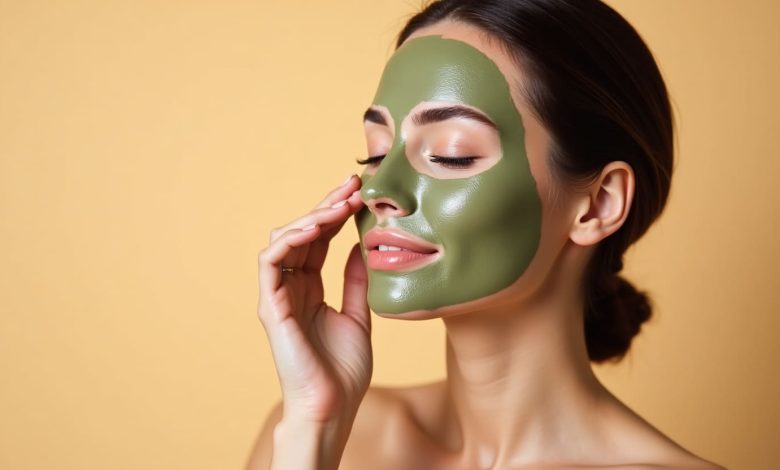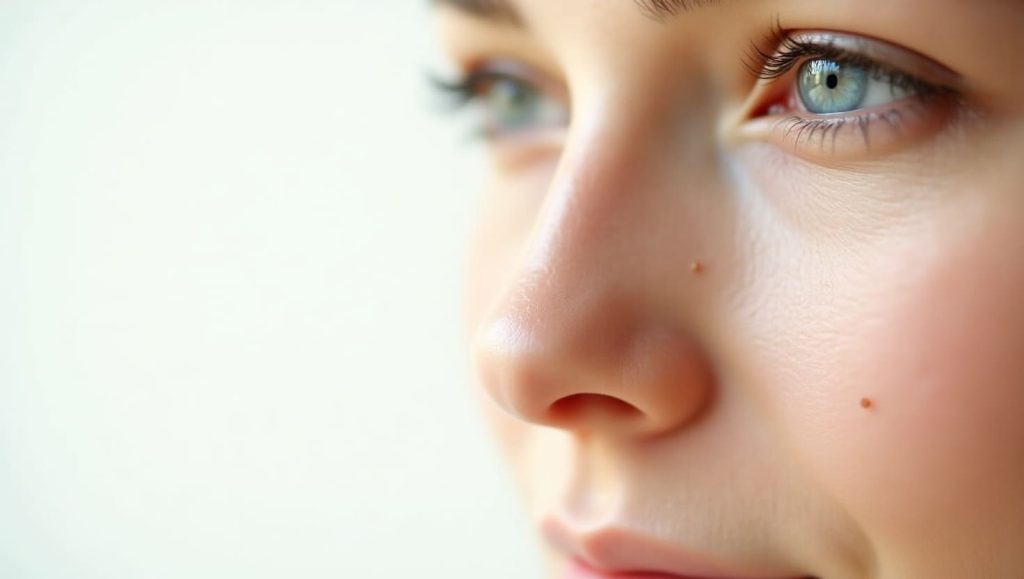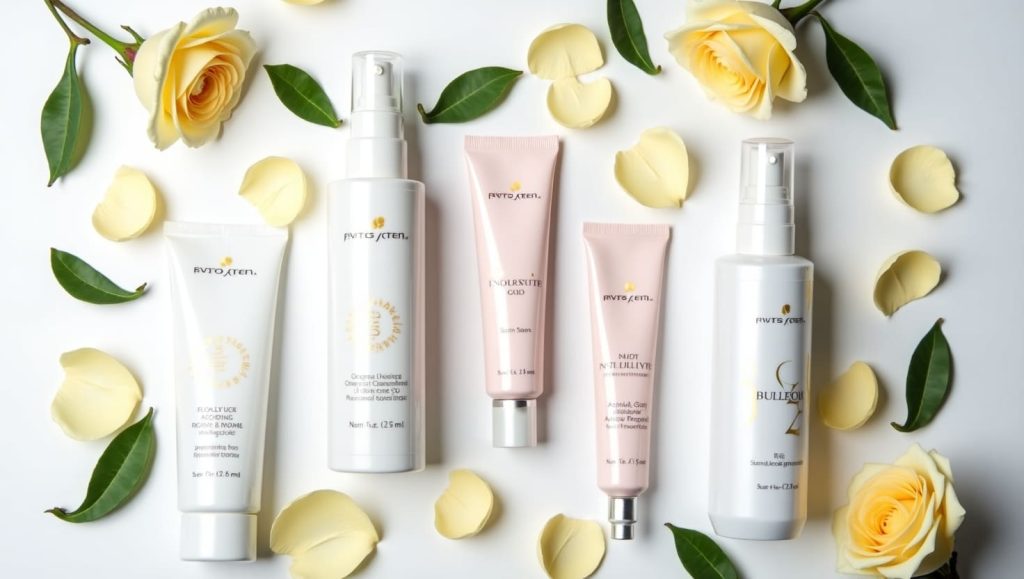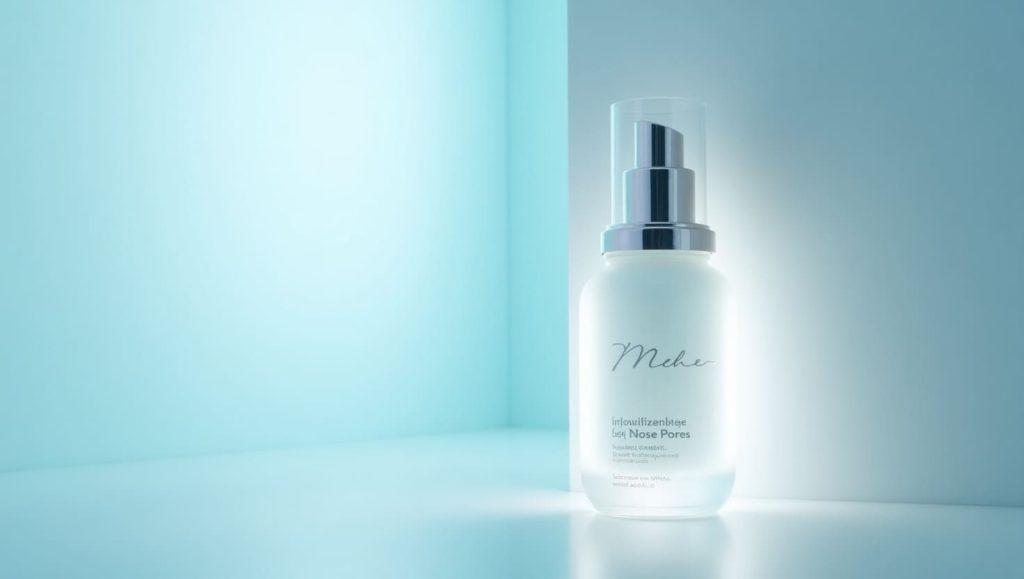Skin Care 101: How to Deal with Big Nose Pores

Large pores on the nose can be frustrating. You cleanse, you exfoliate, and yet they remain—those stubborn little dots staring back at you in the mirror. But don’t worry—there are practical, science-backed strategies to minimize their appearance and keep your skin looking smooth and healthy. This guide will walk you through everything you need to know about big nose pores: what causes them, how to treat them, and what habits to adopt for long-term results.
What Are Pores, and Why Are They Bigger on the Nose?
Pores are tiny openings in the skin that house hair follicles and sebaceous (oil) glands. They’re essential for releasing sweat and sebum (natural oils), keeping your skin moisturized and protected.
However, pores on the nose tend to appear larger than on other parts of the face. Why?
The nose is part of the T-zone, which produces more oil than other areas. The skin here also has larger follicles and more sebaceous glands, making pores more visible. In addition, genetics play a significant role—some people are simply predisposed to having larger pores.
Common Causes of Enlarged Nose Pores
Understanding what causes your pores to enlarge can help you tackle the issue more effectively.
Excess oil production is a major contributor. When your skin produces too much oil, it can mix with dead skin cells and clog your pores, stretching them out and making them appear bigger.
Clogged pores, including blackheads and whiteheads, can make your pores seem even larger. Blackheads, in particular, create the appearance of “dots” due to oxidized oil at the pore opening.
Sun damage weakens collagen and elastin in the skin, which helps keep pores tight. Prolonged exposure to UV rays can cause the skin to sag and stretch pores over time.
Aging also leads to enlarged pores. As we get older, our skin loses firmness and elasticity, causing pores to become more noticeable.
Lastly, improper skincare—like skipping cleanser, over-exfoliating, or using heavy, pore-clogging products—can lead to buildup and irritation that contributes to the problem.
Can You Actually Shrink Your Pores?
Technically, you can’t permanently reduce the size of your pores. Pore size is primarily determined by genetics. However, you can significantly reduce their appearance and prevent them from getting larger by keeping them clean, exfoliated, and well cared for.
The Ultimate Skincare Routine for Big Nose Pores

Cleansing is your first and most essential step. Use a gentle, non-comedogenic cleanser that removes dirt, oil, and impurities without stripping your skin. Look for ingredients like salicylic acid, which dissolves oil in the pores, or niacinamide to regulate sebum and reduce inflammation.
Exfoliation helps slough off dead skin cells and unclog pores. Opt for chemical exfoliants like salicylic acid (BHA) or glycolic acid (AHA). These penetrate deeper than physical scrubs and are much less abrasive, which is important for sensitive areas like the nose.
A good toner or mist can help refine pores and control oil. Witch hazel, green tea extract, and niacinamide are excellent ingredients to look for in your toner.
Add a serum that targets oil control and skin texture. Niacinamide is a star ingredient here. Retinol or retinoids can also help by increasing skin turnover and boosting collagen production, making pores appear tighter and smoother over time.
Moisturizing is critical, even for oily skin. Choose a lightweight, oil-free moisturizer with ingredients like hyaluronic acid or glycerin. These humectants draw water into the skin without clogging your pores.
And never skip sunscreen. Daily SPF is non-negotiable for anyone looking to manage pore size and skin texture. UV exposure breaks down collagen, which can enlarge pores. Use a non-comedogenic, broad-spectrum SPF 30 or higher—preferably with a matte finish if you’re prone to shine.
Recommended Read: 7 Men’s Skin Care Tips Every Guy Needs to Know
Lifestyle Habits That Help Reduce Large Nose Pores

Avoid touching your face throughout the day. Your fingers transfer bacteria and oil, increasing the risk of clogged pores and breakouts.
Your phone can be another source of bacteria. Clean your screen regularly, especially if you spend a lot of time on calls.
Managing stress is also important. Stress hormones can increase oil production, contributing to pore-clogging buildup. Activities like meditation, yoga, or simply getting enough sleep can help balance your skin from the inside out.
Diet and hydration matter more than most people think. Drinking enough water helps maintain skin elasticity and flush toxins. Eating foods rich in omega-3 fatty acids (like walnuts and salmon), zinc (like pumpkin seeds), and antioxidants (like berries and leafy greens) can support healthy, balanced skin.
Harvard Health on Omega-3s and Skin Health
Be careful not to overwash your face. Washing too frequently or using harsh cleansers can strip your skin’s natural oils, causing it to overcompensate with even more oil—leading to bigger, more clogged pores.
Products That Actually Work for Nose Pores

Here are a few dermatologist-loved products that consistently deliver results:
- Paula’s Choice BHA Liquid Exfoliant – Contains 2% salicylic acid for deep pore cleansing.
- The Ordinary Niacinamide 10% + Zinc 1% – Regulates oil and tightens pore appearance.
- CeraVe Foaming Facial Cleanser – Balances oily skin without disrupting the skin barrier.
- Differin Gel (Adapalene 0.1%) – A retinoid that helps unclog pores and smooth skin texture.
- EltaMD UV Clear Broad-Spectrum SPF 46 – Lightweight and non-comedogenic with niacinamide and zinc oxide.
Natural and DIY Remedies: Do They Help?
While professional skincare is often the most reliable, some natural remedies may provide temporary relief.
Clay masks (bentonite or kaolin) can absorb oil and draw out impurities from pores. They’re great for oily and combination skin.
Green tea toners are rich in antioxidants and can reduce inflammation and oil production naturally.
Icing your skin with an ice cube or a cold compress may temporarily shrink pore appearance by tightening the skin.
However, be cautious. Avoid applying lemon juice, toothpaste, or baking soda to your skin—these can disrupt pH levels and cause irritation or damage.
Treatments From a Dermatologist
For more dramatic and long-lasting results, consider professional skincare treatments.
Chemical peels using glycolic or salicylic acid exfoliate dead skin and refine texture.
Microneedling creates micro-injuries that stimulate collagen, which firms the skin and tightens pores.
Laser treatments like Fraxel or Clear + Brilliant can resurface the skin, improve texture, and minimize pore visibility.
HydraFacials deeply cleanse the pores while infusing the skin with hydrating serums—especially helpful for the oily, blackhead-prone nose area.
Prescription-strength retinoids, such as tretinoin, are stronger than over-the-counter versions and may significantly improve pore size and texture with consistent use.
Frequently Asked Questions (FAQs)
Do blackheads make pores bigger?
Yes, blackheads clog the pores and stretch them out, making them appear larger. Regular cleansing and exfoliation can prevent buildup.
Is it safe to squeeze nose pores?
No. Squeezing can damage the pore walls, cause inflammation, and lead to scarring or infection. Use chemical exfoliants or professional extractions instead.
How long does it take to see improvement?
You may start to notice results in 4–6 weeks with a consistent skincare routine. Products like retinoids and niacinamide offer excellent long-term results.
Does drinking water shrink pores?
Drinking water doesn’t directly shrink pores, but it helps keep your skin hydrated, elastic, and healthier overall—making pores less noticeable.
Are pore strips good for blackheads?
Pore strips can offer quick results, but they don’t treat the underlying problem and can sometimes irritate the skin. Use them sparingly, and follow with calming ingredients like green tea or aloe.
Can sunscreen help reduce pores?
Yes. UV damage breaks down collagen, which supports the structure of pores. Wearing SPF daily helps protect against pore enlargement and skin aging.
Having large pores on your nose doesn’t mean you’re doing something wrong—it’s a common issue for people with oily or combination skin. But by adopting the right skincare routine, adjusting your daily habits, and possibly incorporating professional treatments, you can significantly reduce their appearance and feel more confident in your skin.
The key is consistency. Stick to gentle, effective ingredients like salicylic acid, niacinamide, and retinol, protect your skin from the sun, and be mindful of your overall lifestyle. With a bit of patience and care, you’ll see your skin—and your pores—transform.



